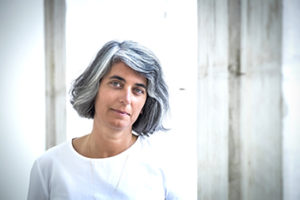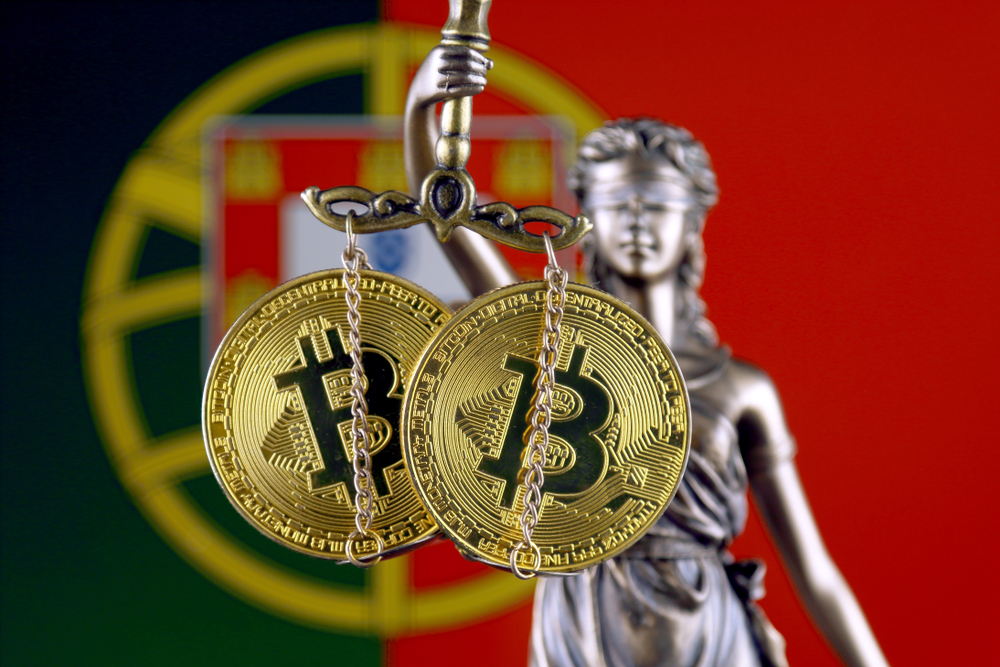The government of Portugal launches a €30,000 GovTech contest for startups that uses blockchain technology to pick the best projects that “solve the problems of humanity.”
The GovTech competition begins in May and will award €30,000 to three startups or teams that create a prototype that will help solve the problems of humanity.
This is the first government contest that will use blockchain technology to choose the winners. Applications start as early as May 2 for all startups that have a product that fits into the 17 sustainable development goals set by the United Nations for 2030.
The competition is open to startups and to all Portuguese citizens registering with a digital mobile key (virtual authentication method to access public entities’ websites) on the platform created, according to Observador.
Anyone who registers will be able to participate in the contest as if it were a crowdfunding platform. Each user, when registering, will earn “GovTechs,” which are virtual voting units that they can use to “invest” in the projects they like best.
The virtual voting units — the GovTechs — will act like a cryptocurrency and are powered by blockchain technology.

Graça Fonseca
“It [blockchain] allows us to monitor how the community supports projects in a transparent way.” It is the first time that this technology is used in a state-run tender. “One of the objectives is to test the blockchain technology in certain type of initiatives and to see the obtained results,” said Graça Fonseca, Assistant Secretary of State and Administrative Modernization to Observador.
Apart from the €30,000 prizes, the three winners will also take home a protocol of collaboration with the government of Portugal to develop the product, a working space in an incubator, internationalization support with the sponsorship of the Camões Institute, and three Alpha tickets for the Web Summit, with exhibitor rights, reported Diário de Notícias.
“The winners will be chosen by a jury and by the general public, who will be able to register on the platform and vote for their preferred candidates. it is a virtual investment, in a scheme of exchange and reward, but it is also a way to mobilize the people,” said Fonseca.
Among the members of the jury are confirmed names such as João Borga, Director at Startup Portugal; Marco Fernandes, President at PME Investimentos; and Catarina Furtado, ambassador of the United Nations. In the panel of jurors will sit also members of the government, “to follow the development of the prototype.”
Registration closes on June 8. The contest will run until October and the platform was created by Bright Pixel which, together with the government, will help manage the site.
Although many startups are expected to participate, the competition is open to all citizens with a working prototype.
“Most candidates are likely to be startups. Projects do not have to be original, they may have already been featured in other contests or in a funding round. We believe that those who will pass will already have some experience,” said Fonseca.
Last month Bright Pixel also partnered with the world’s premier startup launch program for talented entrepreneurs, the Founder Institute, to launch an accelerator program in Lisbon.
Read More: Founder Institute partners with Bright Pixel to launch program in Lisbon
The GovTech initiative is aimed at solving the UN’s 2030 Agenda for Sustainable Development, which outlines 17 goals.
“GovTech wants to respond to the 17 sustainable development goals defined by the UN, with which the Portuguese State has committed itself. We are looking for products or services that present solutions to the problems,” said Fonseca.
Those 17 goals include:
- No poverty
- Zero hunger
- Good health and well-being
- Quality education
- Gender equality
- Clean water and sanitation
- Affordable and clean energy
- Decent work and economic growth
- Industry, innovation, and infrastructure
- Reduced inequalities
- Sustainable cities and communities
- Responsible consumption and production
- Climate action
- Life below water
- Life on land
- Peace, justice, and strong institutions
- Partnerships for the goals
Tech initiatives leading up to the year 2030 have been ambitious in Portugal. Yesterday, Portugal’s Minister of Science, Technology and Higher Education, Manuel Heitor, reiterated the “clear ambitions” that Portugal has to lead the digital area until 2030, highlighting the importance of the National Digital Competence Initiative.
The Portuguese initiative aims to establish a strategy for the country’s digital development, positioning it in the group of top European countries in digital skills by 2030.
Speaking in Brussels at the Digital Day 2018 initiative, organized by the European Commission, Heitor referred to the importance of strengthening the area of artificial intelligence, and specific technologies such as blockchain, which promotes decentralization as a security measure.
The one-day event brought together high-level stakeholders in the fields of digital technology and telecommunication.
Blockchain technology is also spreading across governments and organizations throughout the world.
Last week the United Nations World Food Program partnered with blockchain startup Devery to implement a blockchain-based tracking system for a school meals program in Tunisia.
“This project is allowing us to explore how supporting innovation, through the introduction of solutions based on blockchain technology, can contribute to strengthening the effectiveness and efficiency of the Tunisian national school meals program,” said UN World Food Program representative Maria Lukyanova, who is also represents the Head of Country Office for the Republic of Tunisia.
In Portugal, Etherify was the first Ethereum consulting and software development firm launched in the country, according to Open Access Government.
“Etherify was started in April 2017 by two young entrepreneurs: Justin Wu and Fernando Moreira. Since then the firm has grown to become a leader in the blockchain revolution in Portugal.” Its projects range “from commercial banking, the charity fundraising industry and video-games.”

